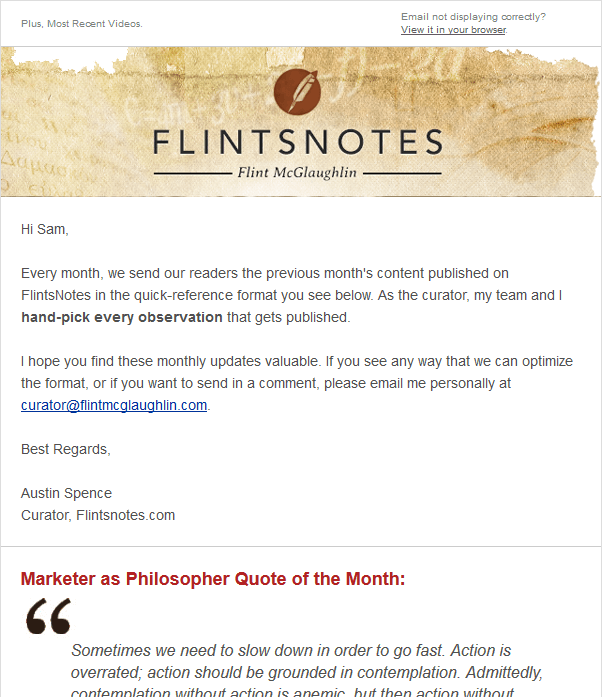This is part two in our series about effective call-to-action strategies that increase your webpage’s performance. Part one is available here: https://youtu.be/onmRwe7o7Qo
We did a meta-analysis of 150 of our experiments to determine six common cognitive conditions in the minds of webpage visitors regarding the call-to-action that hurt conversion. In this session, Flint McGlaughlin, CEO and Managing Director, MECLABS Institute, shows you how to improve your call-to-action by mitigating anxiety with strategic overcorrection methods.
If you would like your landing pages or other marketing to be considered for live optimization – on-the-spot analysis with Flint sharing how to improve conversion during upcoming sessions – send it to us at info@meclabs.
Key points in the video:
2:38 Cognitive Condition #4: Paralysis and its root causes.
5:24 Live Optimization: Audience-submitted CTA from a medical provider
8:47 Condition #4’s solution can be found in these case studies …
13:35 Here’s a checklist you can use on your webpages with criteria for a good CTA, and Condition 4
13:51 Cognitive Condition #5: Decision hesitation and its root causes.
15:12 Condition #5’s solution can be found in these case studies …
20:10 Cognitive Condition #6: Mismatched expectations and its root causes.
21:10 Live Optimization: Audience-submitted CTA from a Pet supplies provider
22:00 Condition #6’s solution can be found in these case studies …
“Asking ‘how’ leads to information; asking ‘why’ leads to wisdom.” This is the essence of Dr. Flint McGlaughlin’s book, The Marketer as Philosopher
For more information, you can visit https://map.flintmcglaughlin.com

